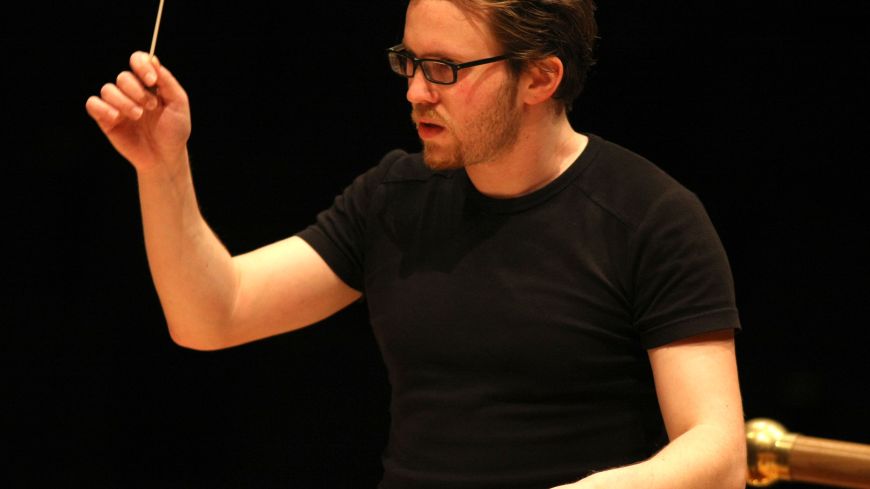
The U.K. premiere of Michael Daugherty’s Deus ex Machina was cannily placed between two firm favourites, Grieg’s Peer Gynt Suite No 1 and Tchaikovsky’s Symphony No 5. Previously unheard music is not a crowd-puller. But Daugherty is a well respected American composer, describing himself as originally a lounge bar pianist, who was born in 1954.
He is tall. He came on to introduce his music along with the 34 year old American pianist Terrence Wilson. Daugherty announced he was six feet eight tall; Terrence Wilson was told to tell us he was five feet four inches.
Deus ex Machina is all about railway trains. The piece started when Terence Wilson climbed onto his piano stool and with bare knuckle played the piano wires. Soon the orchestra joined in and the pianist was properly on his stool playing the black and white keys - sometimes extraordinarily fast. The three movements are described Fast Forward, Train of Tears and Night Steam. There’s a hint of jazz, but it’s mostly original, listenable music, much of it created with the help of Daugherty’s computer skills.
The Principal Trumpet missed out on a deserved round of applause for his key role, a little bit of which he had demonstrated as part of the composer’s introduction. It was interesting to see the cymbals, laid horizontal, being played at their sides by a violin bow.
At the talk beforehand Michael Daugherty had told us about the second slow movement for it represented Abraham Lincoln’s funeral train. In the months of April and May 1865 seven coaches painted black carried the body of the assassinated American Civil War President through seven states on a 1,650 mile journey to allow millions of mourners to pay their last respects. This was only possible because of the recent development of a method of embalming, he said.
David Danzmayr, the Royal Scottish National Orchestra’s Assistant Conductor, showed his considerable skill with his graceful and all embracing use of the baton for Grieg’s Peer Gynt Suite No 1.
Some conductors make a point of bringing on the different parts of the orchestra at their cue. Danzmayr did not need to do this, and demonstrated his overall command with passion. It’s always a pity we cannot see a conductor’s facial expression - we just get the back view. Probably on this occasion it was just as well - for all the audience’s coughing and spluttering elongated the gap between movements. Outside it was a very cold night.
The Tchaikovsky Symphony No 5 in E minor was the reason a couple near me were at the concert. We like to hear it at least once a year, they told me. Played in great style by an orchestra just back from a triumphant visit to Amsterdam and off now for a trip round Europe it was a joyous evening of favourites with a novelty sandwiched between.
Event: Friday 29 January 2010 , 7.30 pm.

